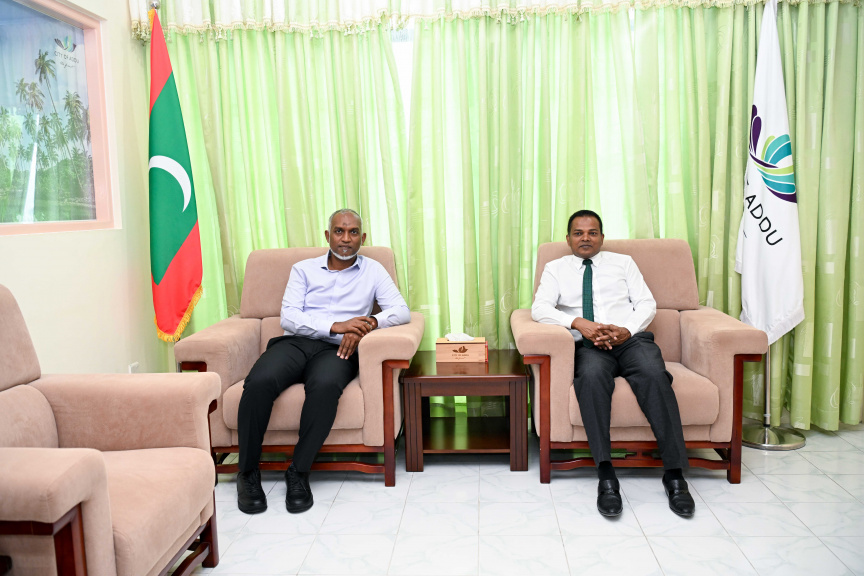
President Dr. Mohamed Muizzu (R) with Addu City Mayor Ali Nizar (L): The President states the first referendum held under Referendum Act will be regarding Addu City Council's jurisdiction. (Photo/President's Office)
President Dr. Mohamed Muizzu has revealed plans to hold a referendum on whether each island should elect its own Council or whether the existing Addu City Council would continue to administer all islands, as is currently the case.
While speaking on the ninth episode of the ‘Rayyithunna Eku’ podcast, the President, reflecting on concerns voiced by the residents of Addu City during his presidential campaign, the President recalled his pledge to find sustainable solutions to issues surrounding the formation of the atoll as a city. He reiterated that, in a decentralized system of governance, the authority to decide how the city is run ultimately rests with the citizens.
As such, he revealed plans to hold a referendum in October under the Referendum Act which he ratified on Tuesday, to finalize a decision on whether to add the suffix “Addu” to each island in the atoll, and, consequently, whether each island should elect its own Council or whether the existing Addu City Council would continue to administer all islands, as is currently the case.
“The question put forth in this referendum is whether, for example, in the vote taken among Hulhudhoo residents, whether they wish to establish a separate council under the name Addu Hulhudhoo Council or continue to remain as a part of Addu City Council, which is currently the case,” he said.

The Referendum Act defines the circumstances under which public referendums can be held, as well as to specify the responsibilities of the relevant authorities, including the Elections Commission (EC).
The bill outlines the framework and process for holding public referendums to gauge public opinion on nationally significant issues, allowing the Parliament to initiate a referendum through a resolution, while also granting the President the authority to call one to assess public sentiment on matters of national importance.
Independents Institutions Committee which reviewed the bill passed it with minor changes.
These changes include:
Public referendums can be held to determine the following under the bill.
Notably, the bill comes amid plans by the government to combine the presidential and parliamentary elections in light of the heavy expenses that the state has to bear to hold the elections separately. To implement these changes, the government is planning to hold a referendum this year.